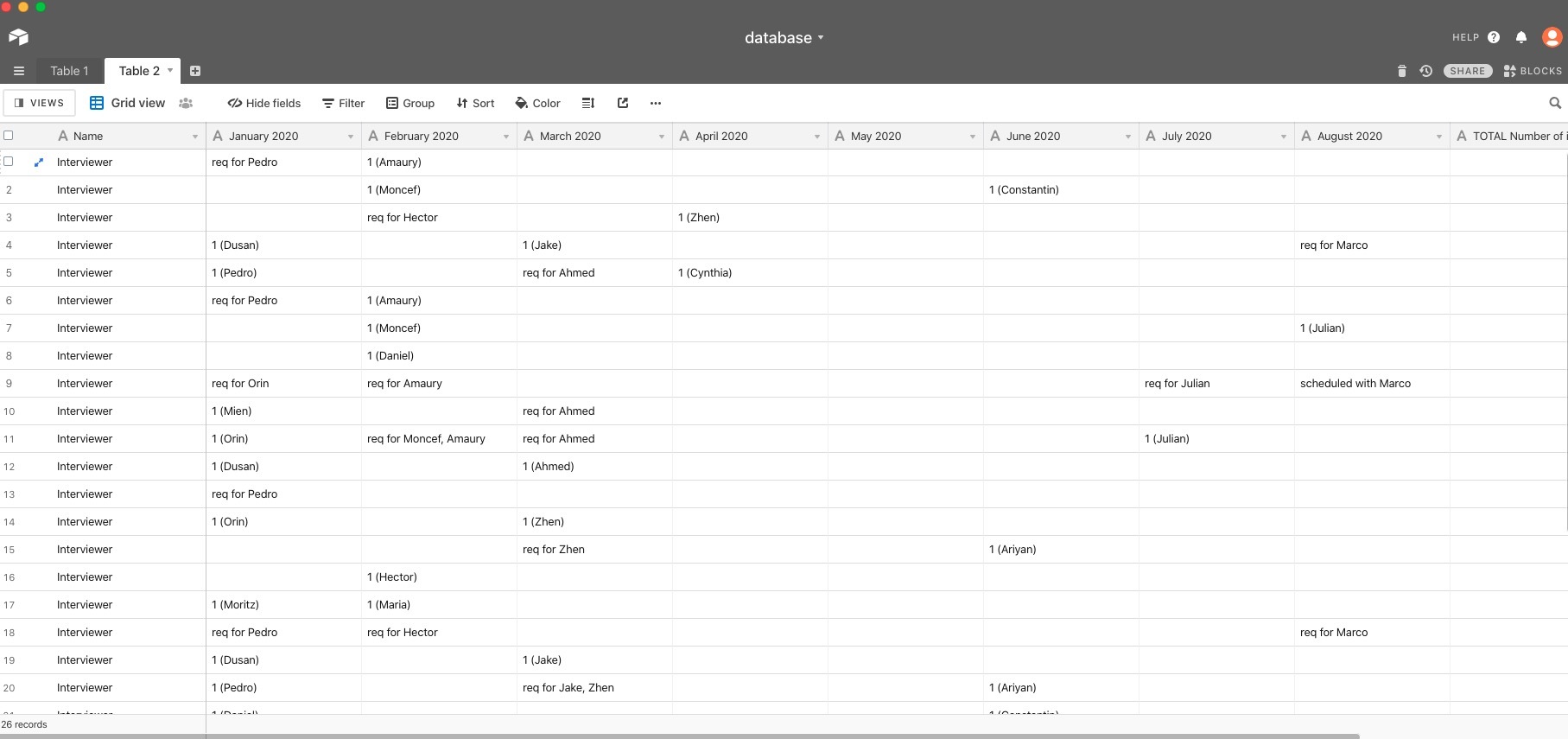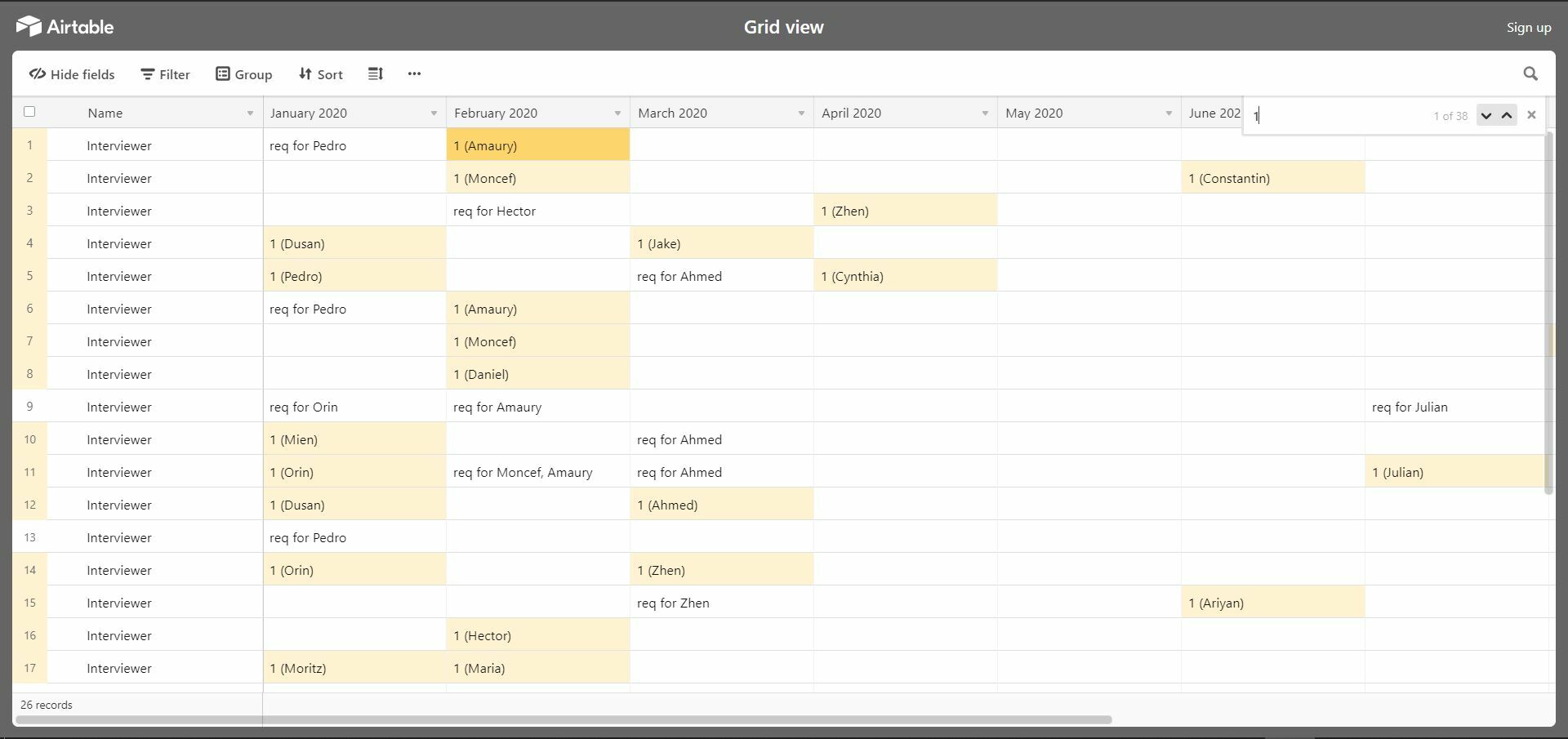We have a weird way of keeping track how many interviews our interviewers have done.
I would like to know how to count the number of times “1” comes up in each cell across all columns from Jan 2020 - August 2020. So in my simple way of formulating it would be something that translates the following
(number of times “1” comes up in Jan2020) + (number of times “1” comes up in Feb2020) + (number of times “1” comes up in March2020) + (…etc etc).

You can access a view example here: https://airtable.com/shrVjcpeWwW1jC51n
Let me know if something is not clear! Hope somebody has some ideas or an answer :slightly_smiling_face:
Thanks in advance.



